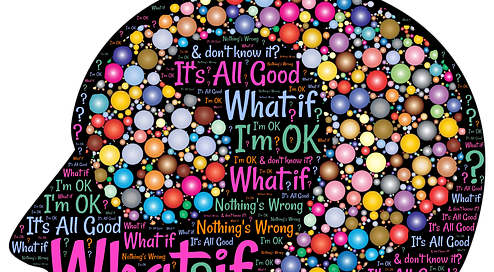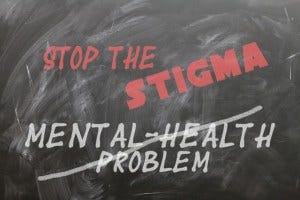"I'm a bipolar disorder."
"I'm a schizophrenic."
"I'm a depressive."
"I'm a borderline."
Unfortunately, these are a few examples of how psychiatric and psychology clients define themselves after they receive a diagnosis. Sadly, and in my experience, there were always some staff members in psychiatric settings who defined their clients.
During my forty years of experience working in mental health, it was not unusual for clients to ask me about their diagnosis. Most often, I would answer by saying you are seeing me for psychotherapy because there are some personal issues with which you are coping. You are not a diagnosis. You are a person.
There were two exceptions to this response. One was if a person was so upset that we both believed that medication might be important to help relieve symptoms, most often depression. The second exception was dealing with health insurance issues. Health insurance companies demand a diagnosis before they will issue any reimbursement for services rendered. I always explained to clients that I would only use the most vague diagnosis possible, such as general anxiety disorder. Ultimately, I stopped using insurance companies and lowered my fees.
Diagnosing psychological disorders is a complex and nuanced task that involves understanding a wide range of symptoms, behaviors, and personal experiences. The process is important for identifying appropriate treatments and interventions, particularly medication. Still, it is fraught with several challenges that can affect the accuracy and effectiveness of diagnoses. In my experience, incorrect diagnoses happen too frequently.
One of the major problems in diagnosing psychological disorders is the subjective nature of symptom reporting. Symptoms such as sadness, anxiety, or hallucinations are inherently subjective and can vary from one person to another. What one individual might describe as debilitating anxiety could be moderate for another, which can lead to inconsistencies in how disorders are diagnosed across different individuals.
I was conducting a mental status assessment of a client referred to me by her psychologist while I was in a psychiatric outpatient clinic. A standard question in a mental status assessment is whether the client experiences auditory hallucinations. Those are the most common types of hallucinations that people experience. She denied hearing "voices." However, when asked if she heard reports from Mars addressed to her on her radio, she said, "Yes." That is an example of how difficult assessments and diagnoses in mental health can be.
Additionally, psychological symptoms often overlap among various disorders, leading to potential misdiagnosis. For example, symptoms of anxiety are common in many disorders, including depression, bipolar disorder, and anxiety disorders themselves. This overlap can make it difficult for clinicians to determine which disorder most accurately reflects an individual's experience. There is often a very delicate difference between bipolar depression and major depression.
Cultural factors also play a significant role in the diagnosis of psychological disorders. Different cultures express and interpret symptoms of mental illness differently, and what is considered a symptom in one culture might be seen as normal behavior in another. Clinicians must be culturally competent to accurately diagnose disorders in a culturally diverse population, recognizing and adjusting for cultural variations in symptom expression.
The stigma associated with mental health issues can also influence the diagnosis process. Individuals may under-report or exaggerate symptoms because of the fear of stigma or because they want to fit a certain diagnostic label. This can lead to either an underdiagnosis or an overdiagnosis of mental health conditions, affecting the treatment that individuals receive. While diagnoses are necessary, they must be used with care.
The entire process of psychotherapy, besides the issues of diagnosis, is very emotional. It can add to the emotional burdens of clients who are already experiencing issues that brought them to therapy.








This piece was incredibly timely for me. I found it after uttering a prayer this morning for help with a child who is failing college, sinking into major depression and suicidality. She just wants medicine and a diagnosis. But I’m worried that the diagnosis will become a life sentence. I believe that people can grow, learn, and heal. But it seems that all she ever gets is messages that she just needs to medicate and cope.
Thank you for bringing about more awareness to EUPD/BPD!
Although people can easily type in a diagnostic term and find heaps of information, the data that’s always at the top of searches is often incredibly inaccurate. Not only that, there is so much blatant misinformation characterising us in quite an upsetting medium.
It’s so refreshing to see your content which is accurate. I’m under no illusion of the negative aspects of my personality. I know them too well and readily admit my many flaws. But your balanced approach and understanding of the existential failings in a broken system can bring about change for others.
That is the most important and incredible key to future success of our people “lost” in the system. Thank you my friend